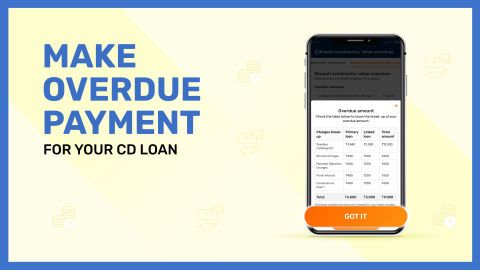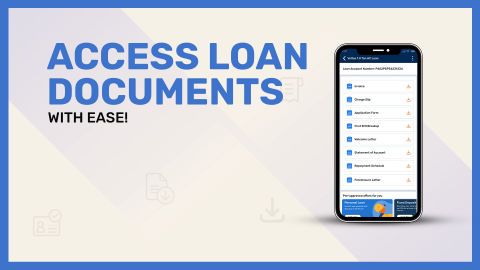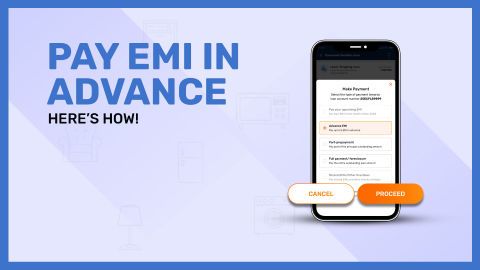Gold loans are a quick and efficient way to secure funds by pledging gold as collateral. Many borrowers opt for Electronic Clearing Service (ECS) for seamless EMI payments. However, if an ECS transaction fails, it can result in return charges, penalties, and financial inconvenience. ECS return charges vary based on the lender's policies and the reason for failure, such as insufficient funds, incorrect banking details, or expired mandates. These charges not only add to your loan expenses but can also impact your credit score. Understanding the reasons behind ECS failures and their consequences is essential to avoid unnecessary costs and legal complications. By proactively managing your loan repayment, ensuring adequate funds, and promptly addressing ECS failures, you can maintain a smooth loan experience. In this article, we will explore the causes of ECS returns in gold loans and how borrowers can prevent and resolve them efficiently.
What causes ECS returns in gold loans?
Electronic Clearing Service (ECS) is a widely used facility for auto-debiting EMI payments for gold loans. However, various factors can lead to ECS failures, resulting in additional charges and possible financial setbacks.
1. Insufficient funds in the bank account
The most common cause of ECS return is an insufficient balance in the borrower’s account. If the EMI amount exceeds the available funds, the transaction will fail, leading to return charges from both the bank and the lender.
2. Incorrect bank account details
Providing incorrect banking information, such as the wrong account number or IFSC code, can lead to ECS transaction failures. The loan provider cannot process payments without accurate details, causing an ECS return.
3. Expired or rejected ECS mandate
The ECS mandate authorizes lenders to debit EMI payments from a borrower's bank account. If the mandate expires or is rejected due to validation issues, ECS transactions will not be processed, leading to failures.
4. Bank account closure or inactive status
If the linked bank account is closed, inactive, or frozen, ECS payments will fail. It is crucial to update the bank details with the lender to prevent transaction failures.
5. Technical errors or bank server downtime
ECS payments may sometimes fail due to technical glitches, system downtime, or maintenance activities at the bank’s end. While these are temporary issues, they can still result in a failed payment.
6. Exceeding transaction limits
Some banks impose daily or monthly transaction limits for ECS payments. If the EMI exceeds the set limit, the payment will be unsuccessful, leading to an ECS return.
Understanding these causes helps borrowers take preventive measures to ensure timely EMI payments and avoid additional financial burdens. Keeping track of loan repayment schedules, maintaining sufficient funds, and updating banking details can significantly reduce the chances of ECS returns.
How gold loan ECS return charges are calculated?
Common reasons for ECS returns
Low account balance: The primary reason for ECS failure is an insufficient balance at the time of EMI deduction.
Incorrect banking details: Any discrepancy in the account number, IFSC, or branch details may cause ECS failure.
Expired ECS mandate: If the authorization for auto-debit expires, the transaction will not be processed.
Technical issues: Bank server downtime or errors in processing may lead to ECS rejection.
Account status changes: A closed, frozen, or inactive account can cause payment failure.
Exceeded transaction limits: Some banks impose a cap on ECS transactions, and crossing that limit leads to failure.
How to avoid ECS return charges on your gold loan?
Maintain sufficient funds: Ensure your account has enough balance before the EMI due date.
Set up payment alerts: Enable SMS or email alerts for low balance notifications and due dates.
Verify bank details: Cross-check account details with your lender to avoid ECS failures.
Renew ECS mandate on time: Keep track of your ECS mandate validity and renew it before expiry.
Choose an alternative payment method: Opt for UPI, net banking, or manual payments if ECS fails.
Change EMI date: If your salary is credited late, consider adjusting your EMI payment date with your lender.
Request for a grace period: Some lenders offer a grace period before charging penalties; check with your bank.
How to resolve ECS returns on your gold loan?
Contact your bank for solutions
Inform your bank immediately: Notify your bank about the ECS failure to avoid further penalties.
Request a one-time waiver: Some banks allow a one-time waiver on ECS return charges for genuine cases.
Ask for alternative payment options: Lenders may provide other payment methods, such as NEFT or UPI.
Confirm the next ECS deduction date: Ensure your account is prepared for the next auto-debit attempt.
Correcting insufficient funds or account details
Deposit the required amount: Add sufficient funds to your account before the next ECS transaction.
Set up automated alerts: Enable reminders to maintain balance before the EMI due date.
Verify and update bank details: Check with your lender to correct any errors in your banking information.
Submit a fresh ECS mandate: If the issue is due to an expired mandate, submit a new authorization.
Discuss repayment plans: If you’re facing financial issues, talk to your lender about restructuring options.
By taking timely action and managing ECS payments effectively, borrowers can avoid additional charges and maintain smooth loan repayments.
Legal implications of ECS return charges
Penalty charges: Lenders impose ECS return charges that increase with repeated failures.
Late payment fees: Missing EMI payments due to ECS failure leads to late fees.
Credit score impact: Repeated ECS failures negatively affect your credit history.
Legal notices from lenders: Continuous ECS failures may lead to legal notices from your lender.
Loan recall: Persistent failures may result in the lender recalling the full loan amount.
Negotiable Instruments Act, 1881: ECS failures may be considered as bounced payments under this law.
Restricted future borrowings: Poor repayment history can reduce loan approval chances.
Asset seizure risk: Lenders may take legal action to recover outstanding dues.
Discussions with lenders: Borrowers can negotiate terms to prevent legal complications.
Preventive measures: Opting for timely gold loan renewal and ensuring sufficient balance can help avoid issues.
Customer support assistance: For quick resolutions, reach out to Bajaj Gold Loan Customer Care.
By taking timely action and managing ECS payments effectively, borrowers can avoid additional charges and maintain smooth loan repayments.
Conclusion
Managing ECS payments efficiently is essential to avoid additional charges and maintain a strong credit history. Understanding the reasons for ECS failures, ensuring sufficient account balance, and promptly addressing issues can prevent unnecessary penalties. Borrowers should stay proactive by setting up payment reminders, verifying bank details, and seeking alternative payment options if needed. If an ECS failure occurs, contacting the bank and lender immediately can help resolve the issue without major financial consequences. Taking these precautions will ensure a smooth loan repayment experience, keeping your financial health intact while avoiding legal and monetary complications.
Loan support made easy—read on — H2




